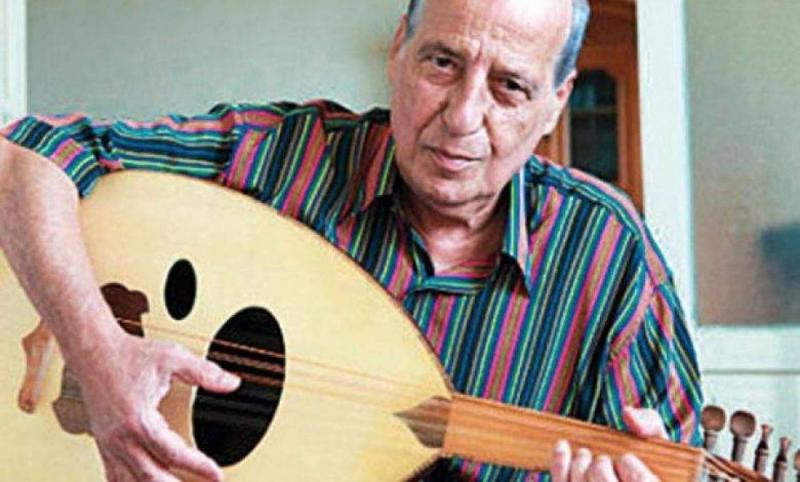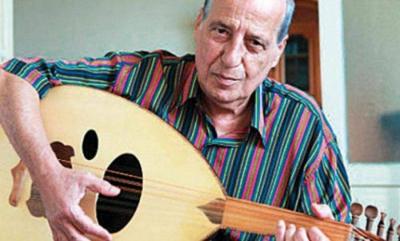Lebanon lost today, Wednesday, the Lebanese musician Ely Choueiry, a contemporary of the golden generation, at the age of 84. Choueiry was born in Beirut on December 27, 1939. He was proud to have witnessed the golden age of art alongside Muhammad Abdel Wahab, Umm Kulthum, Riyad Al-Sunbati, Abdel Halim Hafez, Karam Mahmoud, Muhammad Abdel Muttalib, Fayza Ahmed, and other giants of art who shaped the map of Arabic song.
In 1966, he married Aida Abi Ad and had three daughters: Nicole, Carol, and Selina. Following a disagreement with the Rahbani brothers, he sought an audio medium to express his feelings and emotions that surged after the outbreak of the war in 1975 and collaborated with the late journalist Sami Ghamayqa to produce the social critique program "Ya Allah," which achieved success on the airwaves of "Voice of Lebanon."
He then met the singer Sabah in the play "Set El Kol," which opened a new chapter in his artistic career, writing and composing "Ta'ala wa Ta'mer Ya Dar." Ely Choueiry created more fame than many artists, including Dalida Rahma, for whom he wrote the play "Qawoush Al-Afrah." She sang for him "Ya Balh Zaghlooli," which became widely known. Majida El Roumi also sang for him "Saqqat Al-Masq," "Minna Ghayrak," and "Mazal Al-Omar Harami," while both Sabah and Samira Tawfiq competed in performing the song "Days of Lulu."
He formed a network of friendships with a few colleagues, including the late Filmoun Wahbi and Nasri Shamseddin, with whom he shared many memories, especially during their fishing hobby. He had written in a message to the late musician Melhem Barakat: "Wait for me, I will catch up with you."




